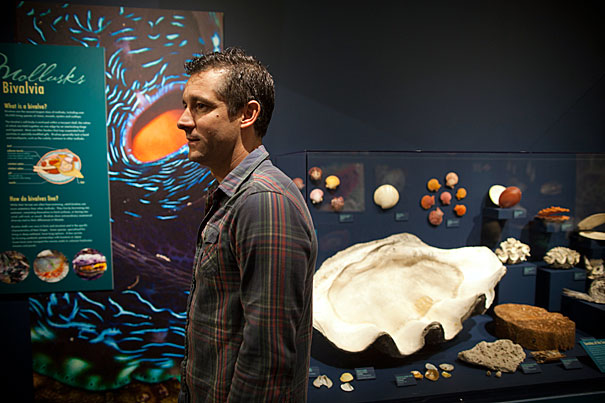Health
-

6 keys to a long, healthy life (ice cream included)
Also, why reading Ben Franklin beats climbing Mount Everest
-

Six cancers rising faster in younger adults than older ones
Large new global study fuels growing concern over trend of increases in several types

-

What’s next for GLP-1s?
Scientists eye new treatment targets for popular weight-loss drugs, from heart failure to addiction
-

Pricey blockbuster GLP-1s are costing users — and most of the rest of us, too
Health insurers are passing along cost for coverage in form of higher rates across the board, policy researcher says
-

Drinking 2-3 cups of coffee a day tied to lower dementia risk
Caffeinated tea also found to slow cognitive decline in study

-

New AI tool predicts brain age, dementia risk, cancer survival
Unlike other AI models, BrainIAC needs limited data to ID key neurological health indicators

-
Flavonoid compound can prevent blood clots
Harvard researchers have shown that a compound called rutin, commonly found in fruits and vegetables and sold over the counter as a dietary supplement, inhibits the formation of blood clots in an animal model of thrombosis.
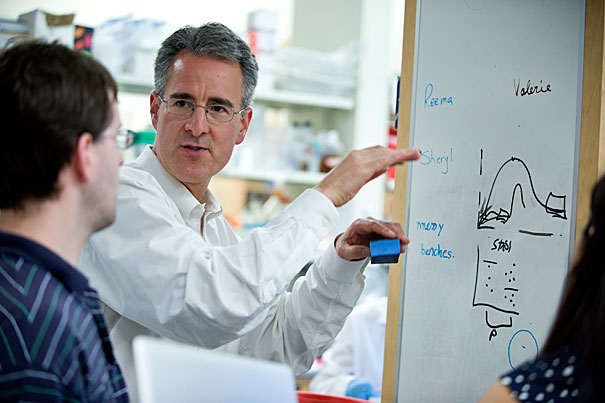
-
When good cholesterol goes bad
A new study by Harvard School of Public Health (HSPH) researchers has found that a subclass of high-density lipoprotein (HDL) cholesterol, the so-called good cholesterol, may not protect against coronary heart disease (CHD) and in fact may be harmful.
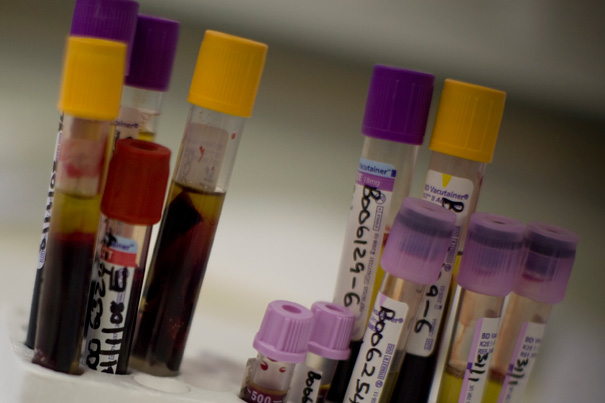
-
Cutting calories before cutting in surgery
Strongly restricted diets have already been shown to increase longevity and prolong one’s healthy years, but research highlighted at a Harvard Global Health Institute symposium at the Harvard School of Public Health shows that the benefits of such restriction may extend to more rapid recovery from surgery and an improved ability to fight disease.
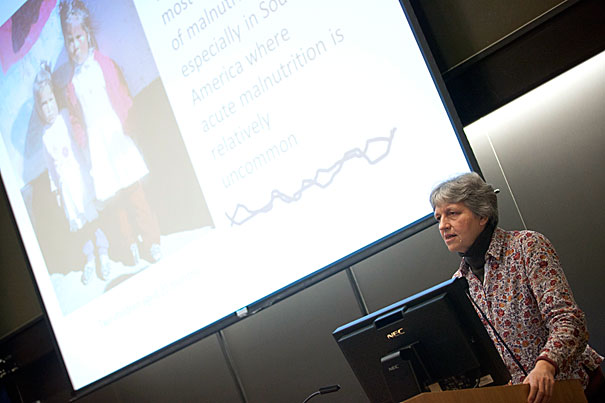
-
A training lifeline for rescuers
The Harvard Humanitarian Initiative has launched a new academy to formalize instruction in international disaster response, with the aim of saving the lives of those threatened by earthquakes, floods, wars, and other catastrophes.

-
Berries keep your brain sharp
A new study by Harvard researchers at Brigham and Women’s Hospital (BWH) finds that a high intake of flavonoid-rich berries, such as strawberries and blueberries, over time, can delay memory decline in older women by two and a half years.

-
Bacteria beware
Harvard researchers have identified pathways of naturally occurring molecules in our bodies that can enhance antibiotic performance.

-
Turing was right
Researchers at Harvard have shown that Nodal and Lefty — two proteins linked to the regulation of asymmetry in vertebrates and the development of precursor cells for internal organs — fit a mathematical model first described by Alan Turing six decades ago.
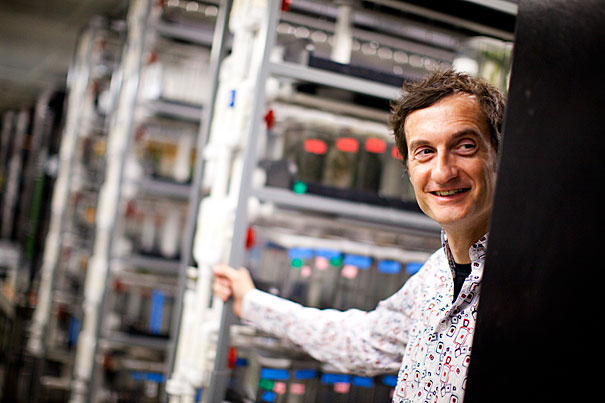
-
Beyond the ivory tower, into the world
The Harvard School of Public Health’s Division of Policy Translation and Leadership Development seeks to give faculty the tools to create broad change and to connect global leaders with the School’s research to improve conditions on the ground.
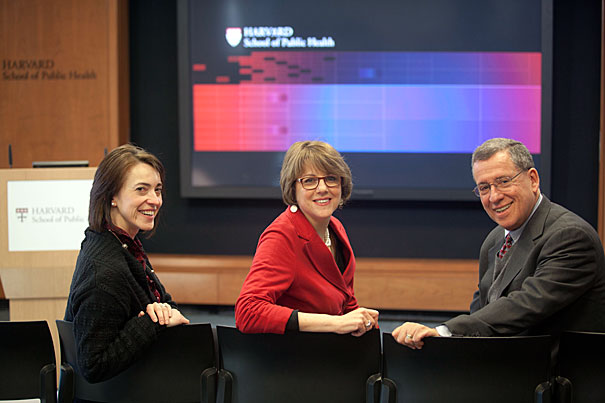
-
The future of self-knowledge
Anne Wojcicki, chief executive officer and co-founder of 23andMe, talked about growth in personal genomics in an event sponsored by the Program on Science, Technology and Society.
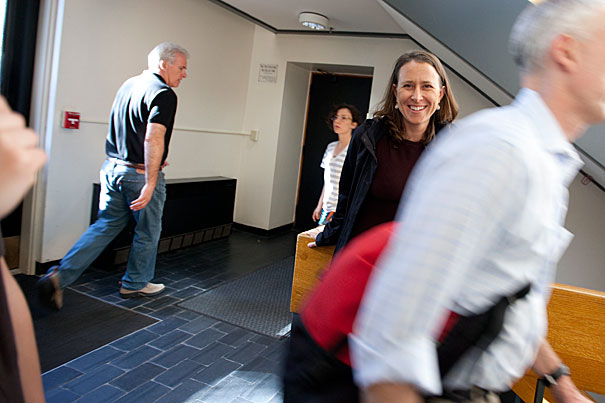
-
Protecting the heart with optimism
Work by HSPH researchers suggests a connection between psychological well-being and a reduced risk of heart attacks, strokes, and other cardiovascular events.
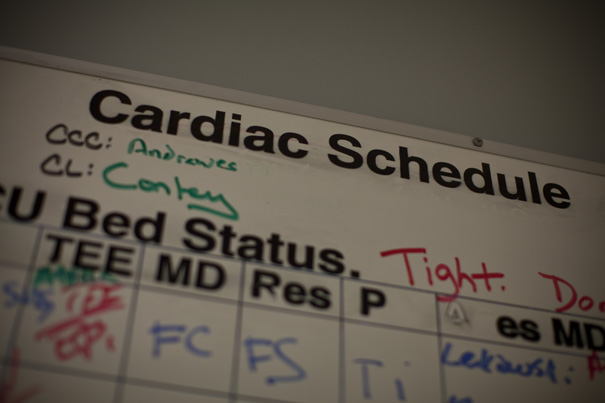
-
Survival of the selfless
In a talk sponsored by the Harvard Museum of Natural History, biologist E.O. Wilson said that competition among groups of humans is a likely explanation for the rise of altruistic behavior in individuals.
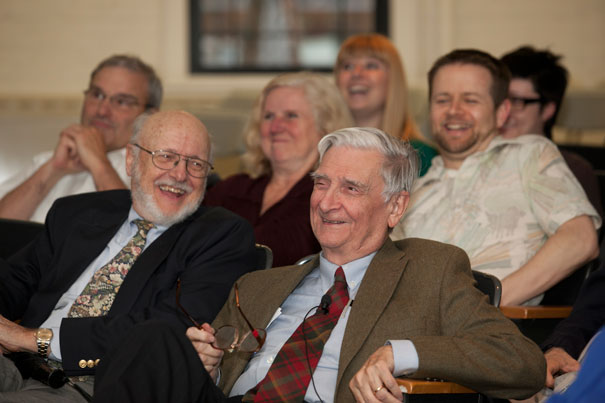
-
Size matters in drug delivery
A new study led by researchers at the Harvard School of Engineering and Applied Sciences and Massachusetts General Hospital has found that normalizing blood vessels within tumors, which improves the delivery of standard chemotherapy drugs, can actually block the delivery of larger nanotherapy molecules.
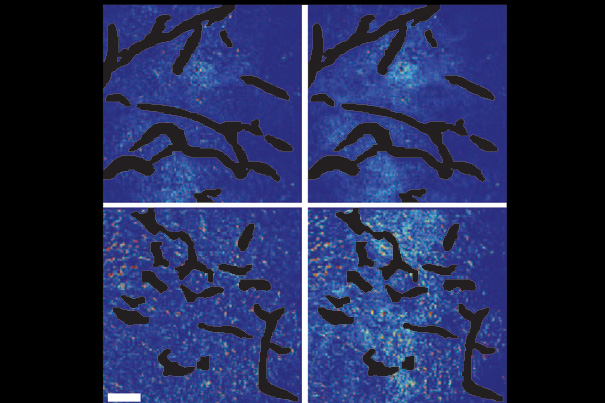
-
Detecting autism in matter of minutes
Researchers at Harvard Medical School have significantly reduced from hours to minutes the time it takes to accurately detect autism in young children.

-
Chill therapy
MGH’s Herbert Benson, author of “The Relaxation Response,” says that the methods outlined in his book can create genetic changes in irritable bowel syndrome sufferers, and with further study might be used to treat other ailments.
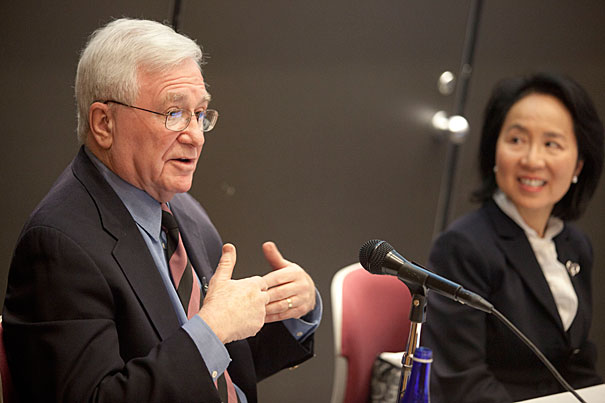
-
2009 flu could have echoed 1918
David Butler-Jones, Canada’s chief public health officer, believes that the relatively mild 2009 global flu outbreak might have been as deadly as the 1918 Spanish flu that killed millions, if not for improved scientific, public health, and medical practices.
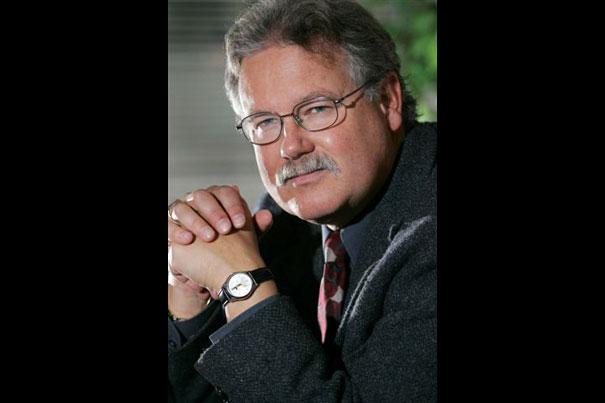
-
Pesticide tied to bee colony collapse
The likely culprit in sharp worldwide declines in honeybee colonies since 2006 is imidacloprid, one of the most widely used pesticides, according to a new study from the Harvard School of Public Health.

-
Big advance against cystic fibrosis
Harvard stem cell researchers at Massachusetts General Hospital have taken a critical step toward discovering in the relatively near future a drug to control cystic fibrosis, a fatal lung disease that claims about 500 lives each year, with 1,000 new cases diagnosed annually.
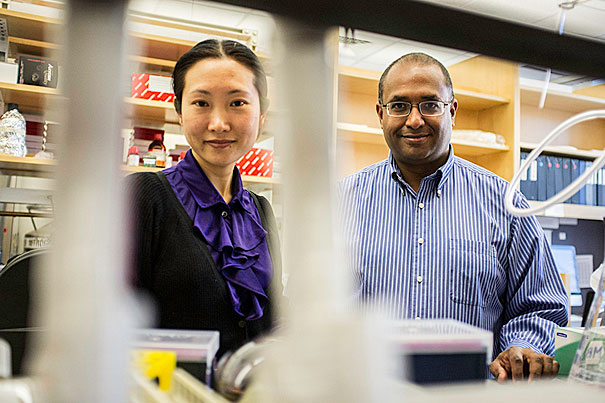
-
Chasing down a better way to run
From pondering prehistoric man to employing high-tech 3-D imaging, Harvard researchers are leaving no shoe unturned to discover why we run, and how we can do it better.

-
Mammography tied to overdiagnosis
New Harvard School of Public Health research suggests that routine mammography screening — long viewed as an essential tool in detecting early breast cancers — may in fact lead to a significant amount of overdiagnosis of disease that would have proved harmless.
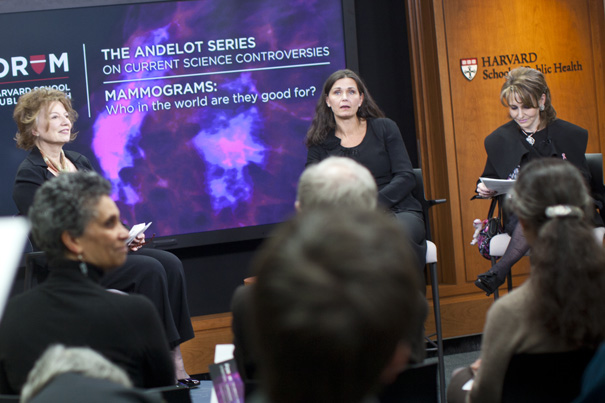
-
An opening against Alzheimer’s
Findings by a team at Harvard-affiliated Beth Israel Deaconess Medical Center suggest a new strategy for diagnosing and treating Alzheimer’s disease.
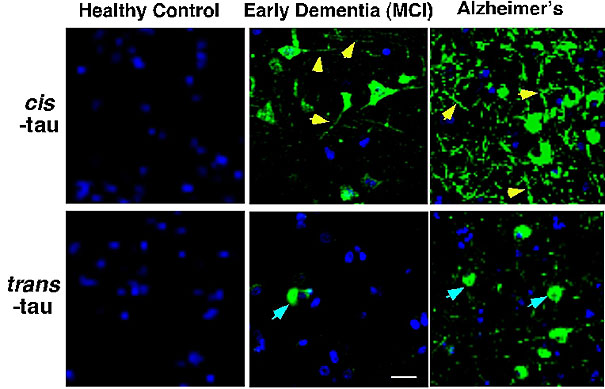
-
Paying hospitals to improve doesn’t work
A new study from Harvard School of Public Health finds no evidence that the largest hospital-based pay-for-performance program in the U.S. improved 30-day mortality rates, a measure of whether patients survive their hospitalization.
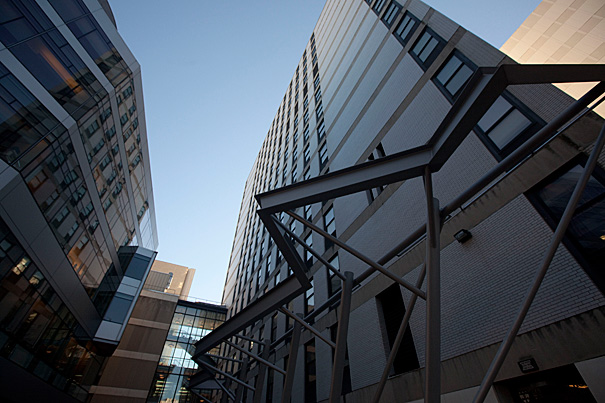
-
Writing the book of cancer knowledge
The Cancer Cell Line Encyclopedia is an academic-industry collaboration resource that marries deeply detailed cancer genome data with predictors of drug response, information that could lead to refinements in cancer clinical trials and future treatments.
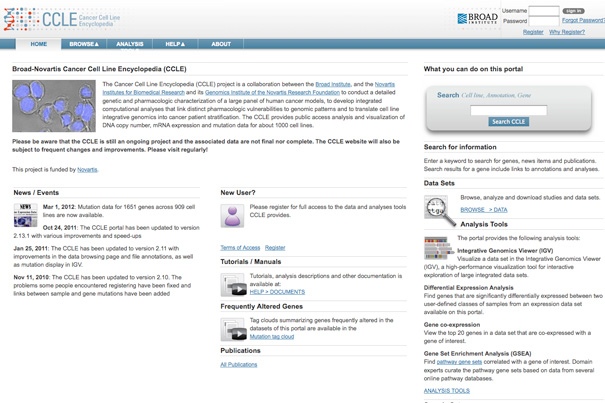
-
Pondering health, at home and abroad
The world is in the midst of a global health transition, with the population growing older and primary health threats coming from chronic, not infectious, diseases, according to speakers at an Advanced Leadership Initiative think tank.
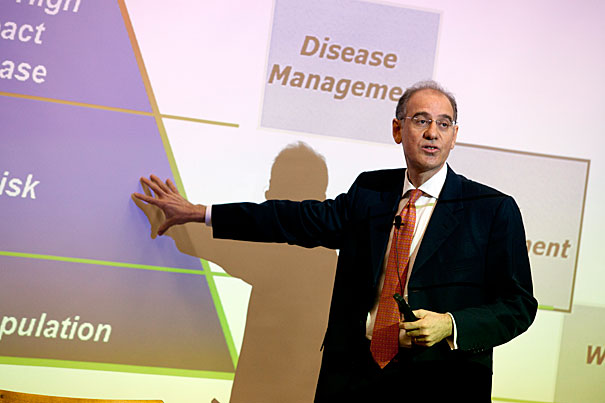
-
Insight on triple-negative breast cancer
Scientists from Harvard-affiliated Brigham and Women’s Hospital and Dana-Farber Cancer Institute and their colleagues have found a genetic marker that predicts which aggressive “triple-negative” breast cancers and certain ovarian cancers are likely to respond to platinum-based chemotherapies.
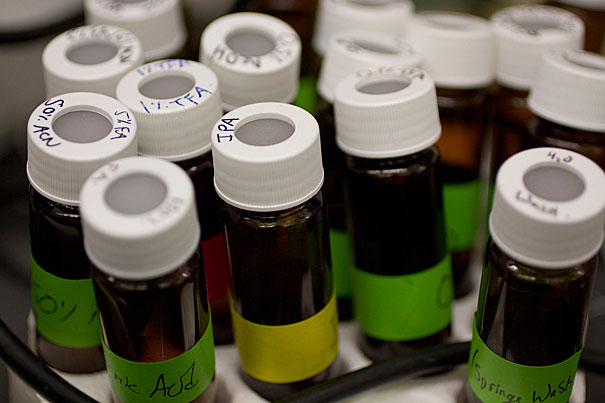
-
Whirlybirds and maple syrup
Perhaps botany, not boxing, is the real sweet science. Harvard Forest researchers are seeking to illuminate maple tree dynamics, investigating a possible link between autumn “mast seeding” and the sugar content of spring sap.

-
Rock sleuths
In one of the largest studies of its kind, Harvard researchers have found that carbon records from the mid-Neoproterozoic era can be “read” as a faithful snapshot of the surface carbon cycle between 717 million and 635 million years ago, a finding that directly challenges a decades-long belief of most scientists.
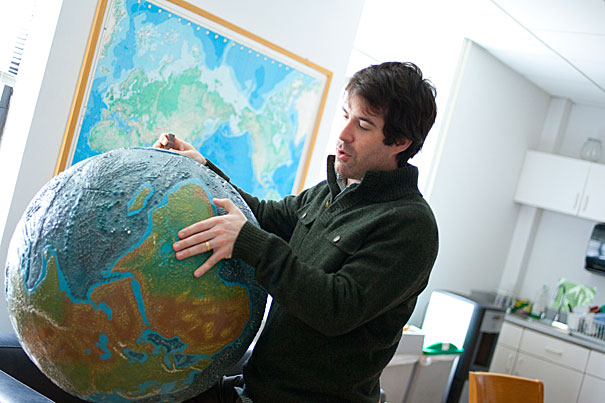
-
A therapist at your fingertips
In a first-of-its-kind study, researchers at Harvard are exploring the use of gamelike programs on smartphones to treat anxiety disorders.
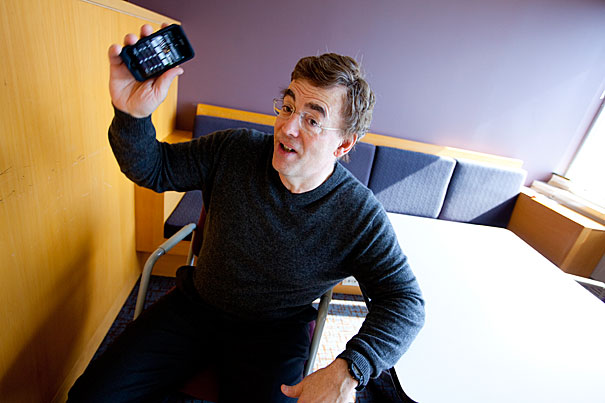
-
Red meat raises red flags
A new study by Harvard School of Public Health researchers has found that red meat consumption is associated with an increased risk of total, cardiovascular, and cancer mortality.

-
Bleary America needs some shut-eye
Cranky, sleep-deprived America got some advice from experts at a Harvard School of Public Health Forum: Get some rest, and reap the health and productivity benefits shown in numerous scientific studies.
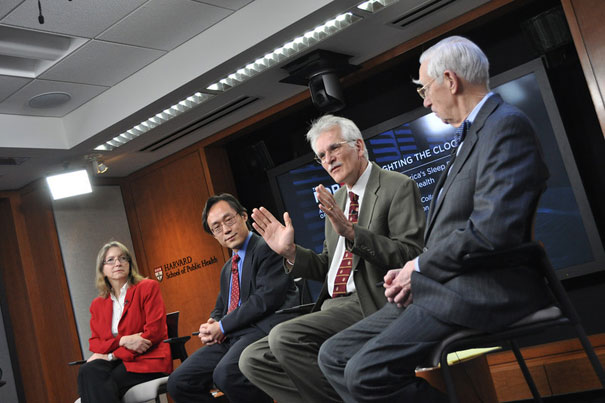
-
Clams, snails, and squids, oh my!
A new Museum of Natural History exhibit focuses on the enormous diversity of mollusks, which live everywhere from the deep ocean to fresh water to land.
